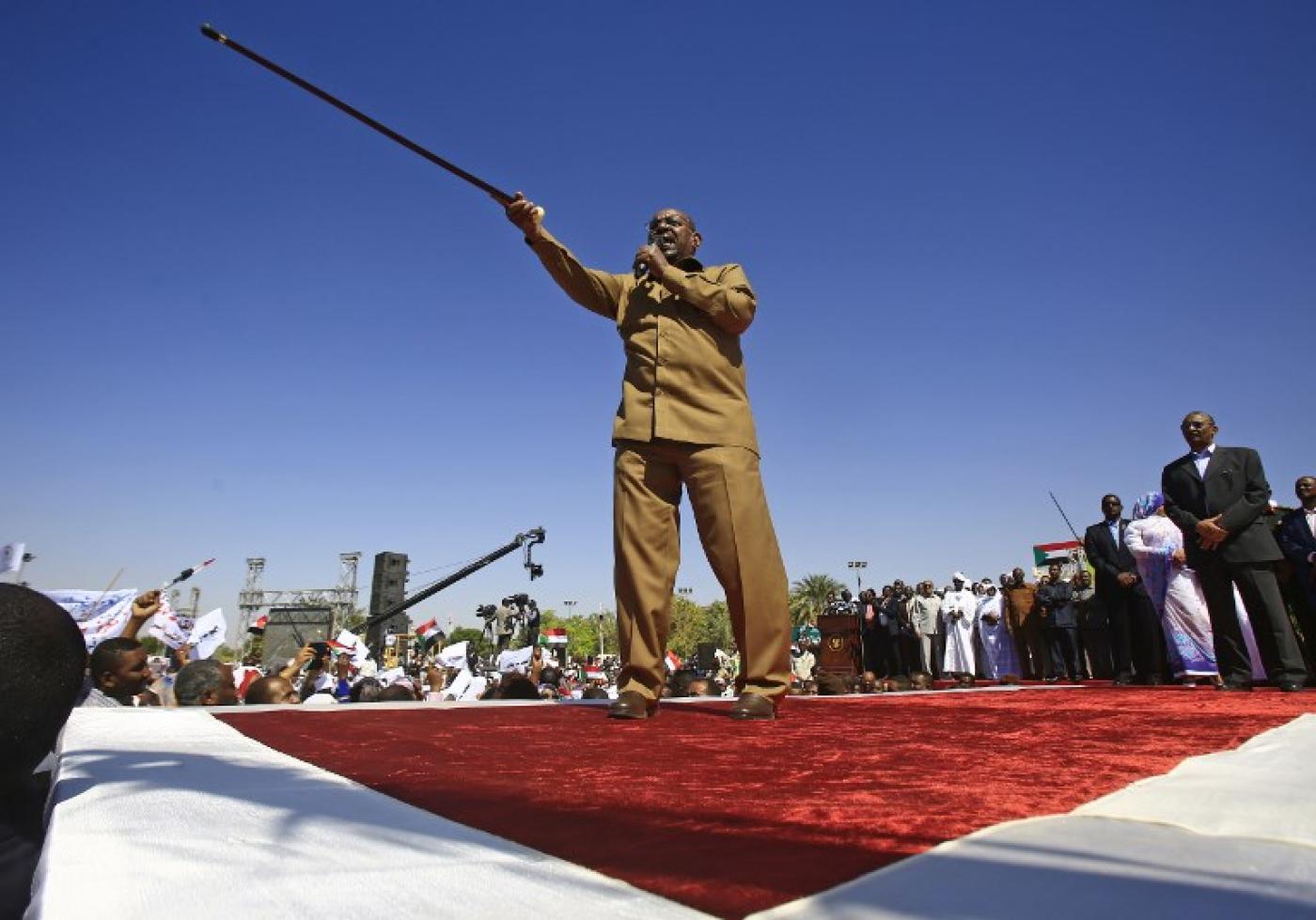Sudan’s President Omar al-Bashir on Sunday pledged to bolster rural development, as he seeks to pacify anti-government demonstrations, set off by a hike in the price of bread, that have rocked cities and villages.
The veteran leader has been on a charm offensive with rallies across the country in a bid to head off weeks of economic protests seen as the biggest threat to his 30-year rule, AFP said.
Bashir’s attempts to rally support have so far failed to halt the wave of discontent, with the group leading the demonstrations calling for fresh protests over the next few days starting Sunday night. Late on Sunday, a group of protesters chanted “revolution, revolution,” in a neighbourhood of Omdurman, witnesses said.
On Sunday, Bashir travelled across North Kordofan, addressing hundreds of people in three separate televised rallies, including a night-time event in the state capital of Al-Obeid.
In the morning he addressed hundreds of villagers in the day’s first rally, promising to bring clean drinking water to rural areas “across Sudan”.
The speech came after he inaugurated a new 340-kilometre (210 mile) highway linking North Kordofan to Omdurman, the twin city of Khartoum.
“Building such a road in present economic conditions is not an easy thing to achieve,” said Bashir, after being escorted to the stage by dozens of men on camels as crowds of villagers clapped and whistled to Sudanese tunes.
“Along this road we will bring electricity to boost the region’s growth.”
Hours later Bashir addressed a second rally where he called on the country’s young men and women to help develop the country.
“The youth, for whom we have built universities, have to be ready to continue with the mission of building a new Sudan,” he said in a village where hundreds had gathered.
The statement came afer Prime Minister Moutaz Mousa Abdallah on Saturday called the protest movement a “respectable youth movement” and said its voice should be heeded.
As darkness fell, Bashir, dressed in traditional robe and turban, spoke to hundreds of cheering supporters, including students, at an open-air stadium in Al-Obeid, where authorities have renovated an existing hospital.
“Patients often go to England, India or Jordan for surgeries, but now we can do them at Al-Obeid,” he said as crowds cheered and loyalists set off fireworks.
Demonstrations erupted in Sudan in December after a government decision to triple the price of bread unleashed frustrations at years of deteriorating living conditions and growing hardship. The country’s spiralling economic woes have over the past year seen inflation rates spike to the third-highest in the world, the East African reported on its website. Shortages of basic commodities including bread are reported to be critical, and petrol stations have run out of fuel.
Bashir’s government has responded by setting limits on withdrawals from automated teller machines and bank accounts, which has disrupted businesses and blocked workers from accessing their salaries and savings, Foreign Policy Magazine reported recently.
“There is an immediate demand for bread, gas, cash and medical treatment, but there is also an abstract need for reclamation of dignity and national pride from a government that has provided neither,” Foreign Policy said.
The economic woes facing Sudan are a result of US sanctions imposed on Khartoum in 1997 and removed two years ago. Sudan had managed to weather them largely because it had oil revenue.
But with South Sudan getting Independence in 2011 and taking with it 80 percent of the oil fields, Khartoum is starved of revenue, and in recent years its Gulf States allies have not given Bashir enough money to maintain his grip on power, according to the East African.
Officials say 30 people have died in protest-related violence, while rights group Human Rights Watch says at least 51 have been killed.
Bashir and other senior Sudanese officials have repeatedly said that the government can be changed only through elections.
The leader, who came to power in an Islamist-backed coup in 1989, is considering running for a third elected presidential term in polls due next year.
[source: Al Jazeera]






 WhatsApp us
WhatsApp us 

